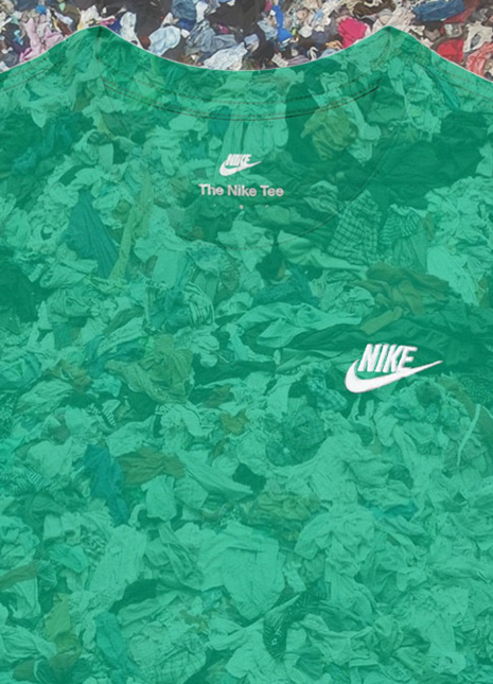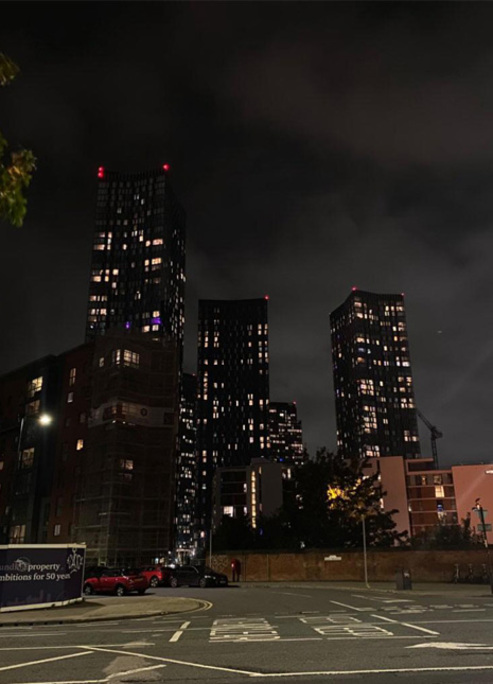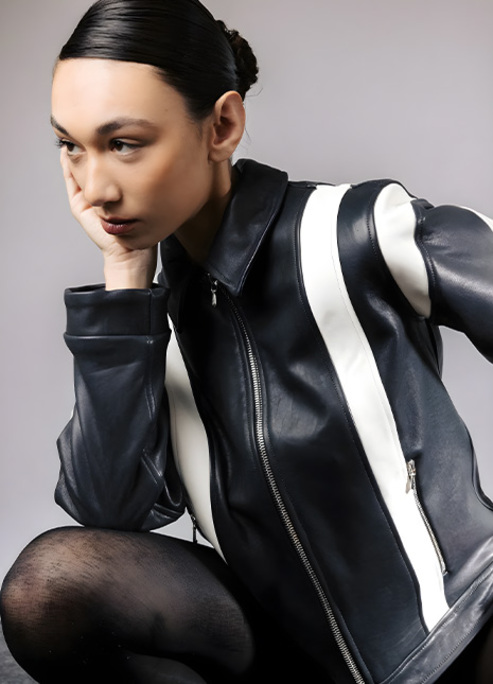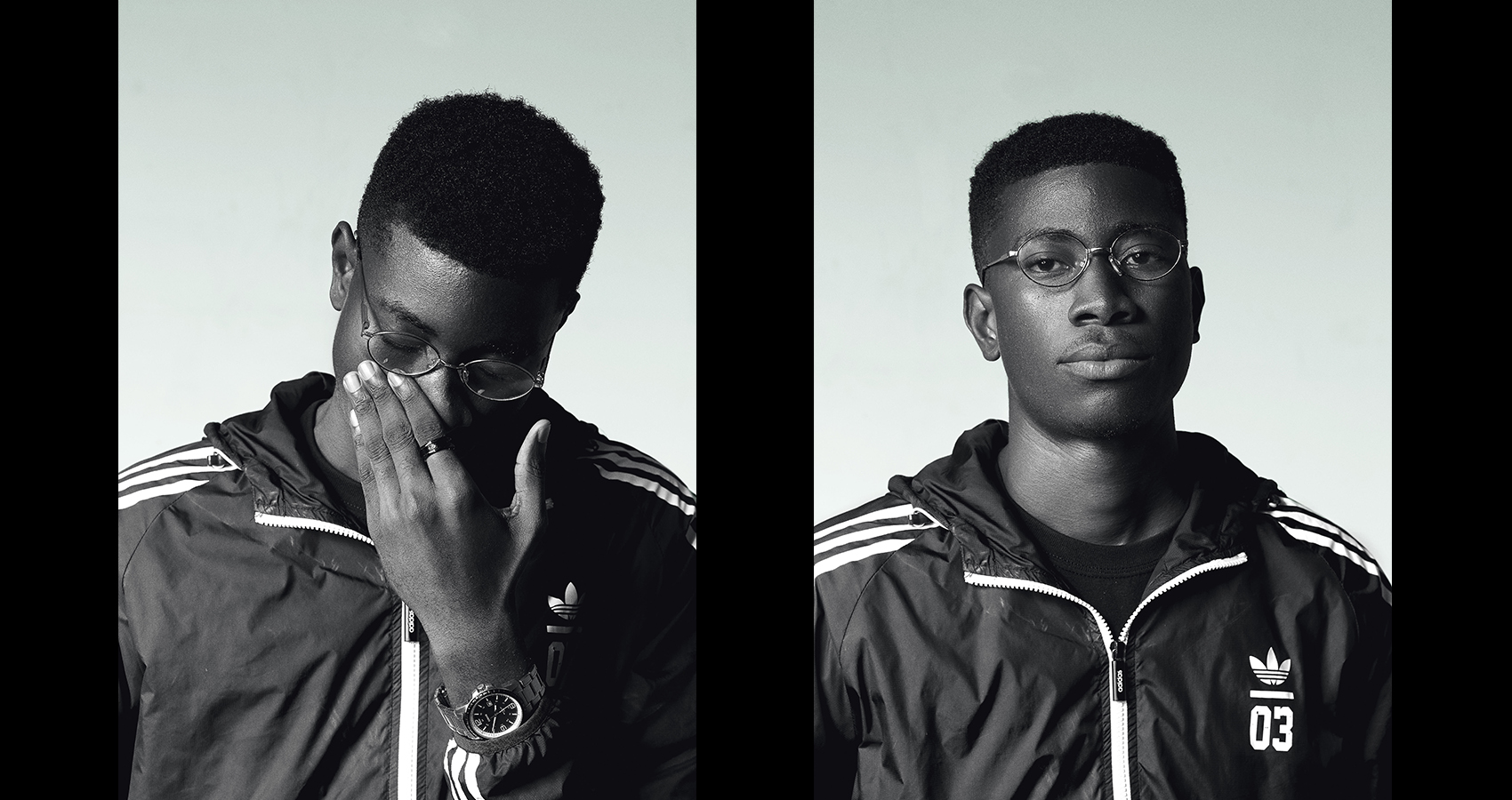
In Conversation With REBL.: The Ghanaian Sustainable Streetwear Label Making Noise
We chat with founder Kuuku Husni Sagoe about reviving waste materials, hip-hop and streetwear's relationship, the West’s growing appreciation for African fashions and more.
REBL. are reshaping sustainability as we know it. Launched in 2018 in Accra, Ghana, the label meticulously transforms waste materials into a unique blend of streetwear and hip-hop infused pieces, keeping identity and authenticity at their core.
Driven by the aim to encourage millennials to discover and live as the truest versions of themselves “rather than allowing society to dictate their worth,” the brand dedicates itself to reject the pressure to conform. “In collectivist cultures where group harmony is prioritized over individual expressions, people are pressured to do all they can to maintain status quo, or the outer harmony,” founder Kuuku Husni Sagoe says, “even at the price of personal autonomy, voice or needs.” Combatting the shame, self-doubt and low self-esteem this can create, REBL. produces a contemporary and high quality uniform for those breaking out of societal strains and into their own uniqueness.
REBL.’s first drop of 2021, REBIRTH, featured a complete fit – a zip-through jacket, cargo pant and bucket hat, which was also available separately in two different colorways. Constructed out of upcycled khaki material and metal pieces found at the biggest e-waste dumpsite in the world, Ghana’s Agbobloshie, the inspiration behind the drop lay in the history and aesthetics of tech workwear. The resulting collection was something both extraordinary and distinguished, transporting sustainable fashion to brand new realms.
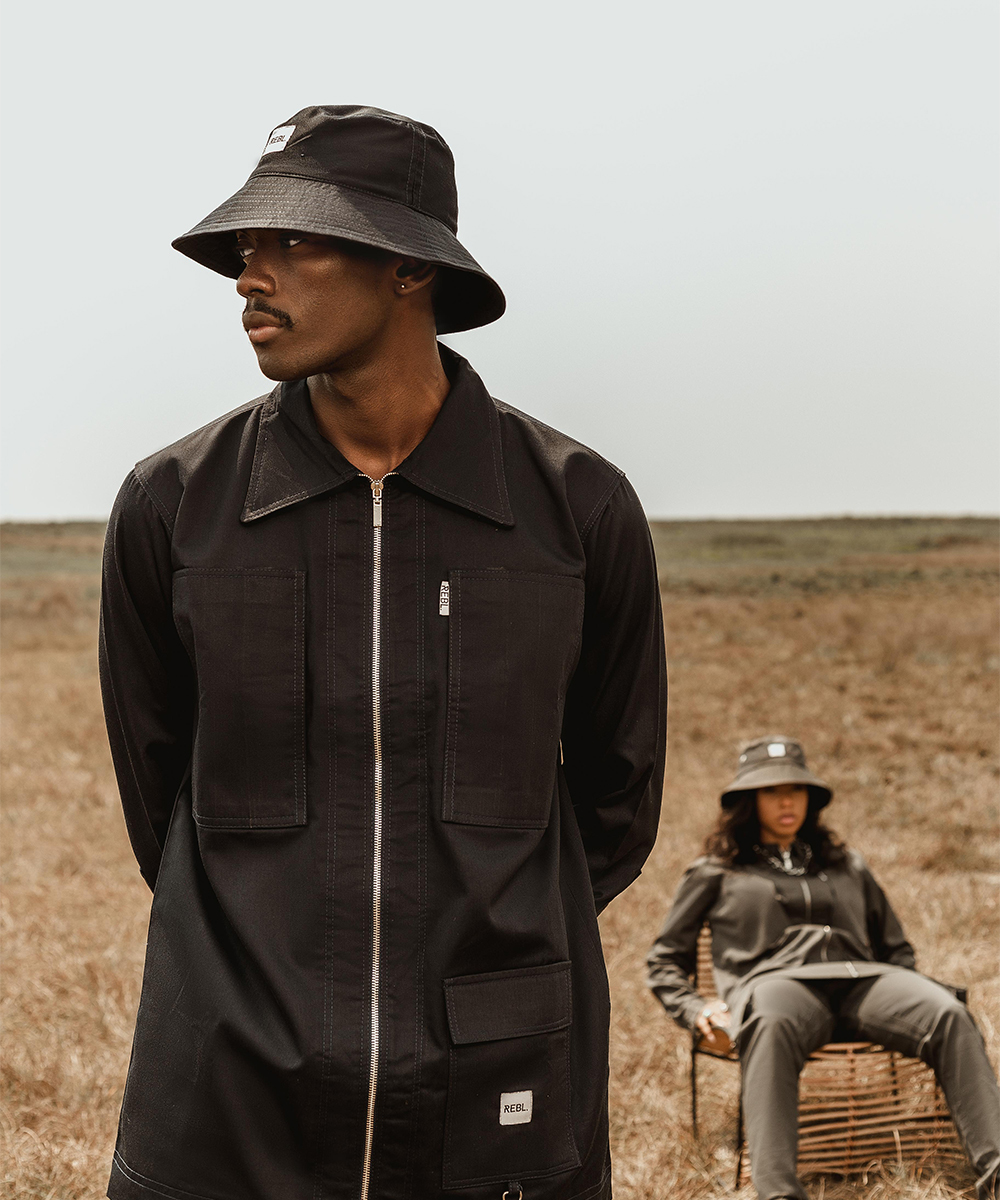
REBL.’s innovative nature continues to spread, from pop-up shops in Accra, Berlin and famed festival Afrochella to ten-hour long vision board parties, scattering the label’s unrivalled essence around the globe.
What was your first experience with sustainable fashion?
I come from a place where thrift shopping is really popular. Growing up that’s where you get authentic designer clothes and sneakers at decent prices. At that time we didn’t even know we were contributing to sustainable fashion by buying these second clothes, we just wanted to look cool. I’d say anyone who’s a fan of pop culture... anyone who’s about that life, you’ve pretty much experienced sustainable fashion all your life.
You’ve mentioned that you’ve been hugely inspired by hip-hop icons such as Jay-Z, Nas, J. Cole. Why do you think hip-hop culture has such an impact on the fashion industry?
Hip-hop is a way of life. It’s more than music, its influence has spread across the globe, impacting politics and media culture. Hip-hop’s influence on fashion today is most evident in the fashion world’s current obsession with streetwear, which has a strong relationship with hip hop culture. Luxury brands often emulate the aesthetic of streetwear. It’s very common to see hoodies, sneakers, sweatpants, chains etc.; all of which have long been a part of hip-hop’s street fashion, on runway shows today.
Brands have gained endorsements in rap verses, music videos and concerts resulting in significant rise in brands awareness like Jay-Z did with iceberg jeans in 1999 to what Nicki did with Fendi in 2018. And the realisation that musicians make powerful influencers has led to rappers today going on to launch successful collaborations with the most popular brands.
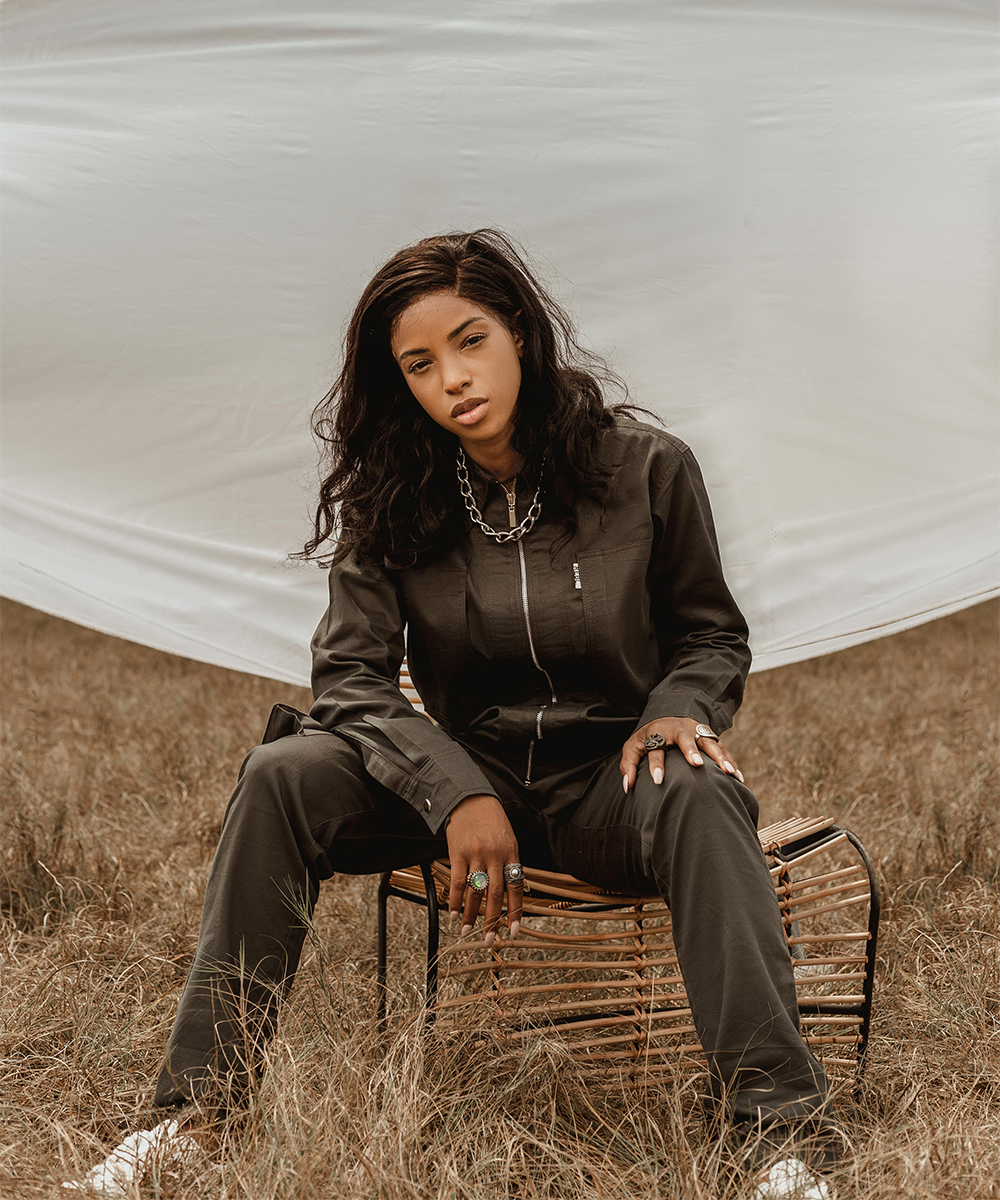
Where does the pressure come from for many millennials to prioritise pleasing others over the self?
I think the pressure comes from the fear of not being accepted. People care so much about what people think of them (I used to go through that a lot) and therefore tend to do things for people to think “highly of them”. I think people pleasers grew up in homes where their parents were critical of them. To compensate, they grow up to appease their childhood misgivings.
What is changing for renowned fashion magazines like Vogue and Elle to be featuring more African fashion?
African fashion is the future. The world has seen the untapped talents in Africa and everybody wants a piece of it lol.
What inspired the creative direction for the REBIRTH shoot?
For the REBIRTH campaign I wanted to take my direction a step further. That was me making a statement in my creative direction. Choice of furniture and location is purely aesthetics.
You acquired metal pieces for the collection from the largest e-waste dumpsite in Ghana, Agbogbloshie. How important for you is it that you use waste materials from your own environment?
It was so important to me because the whole idea of the collection is to sort of bring a new beginning — wearing it means you’ve donned the armor of self worth, therefore rebirth. I needed to find things we can also revive to represent that which resulted in finding these metal pieces from the junkyard at Agbogbloshie, as well as waste pieces of khaki fabrics that are too small or oddly shaped to be used to create future garments in Europe/USA. We gave new lives to them.
What can you tell us about the brand that you’ve never mentioned publically before?
Everybody knows REBL. to have launched in 2018 but it has actually been in the pipeline since 2016. I started working on REBL. in my final year at the university — that’s when I created my first ever logo which I never used lol.
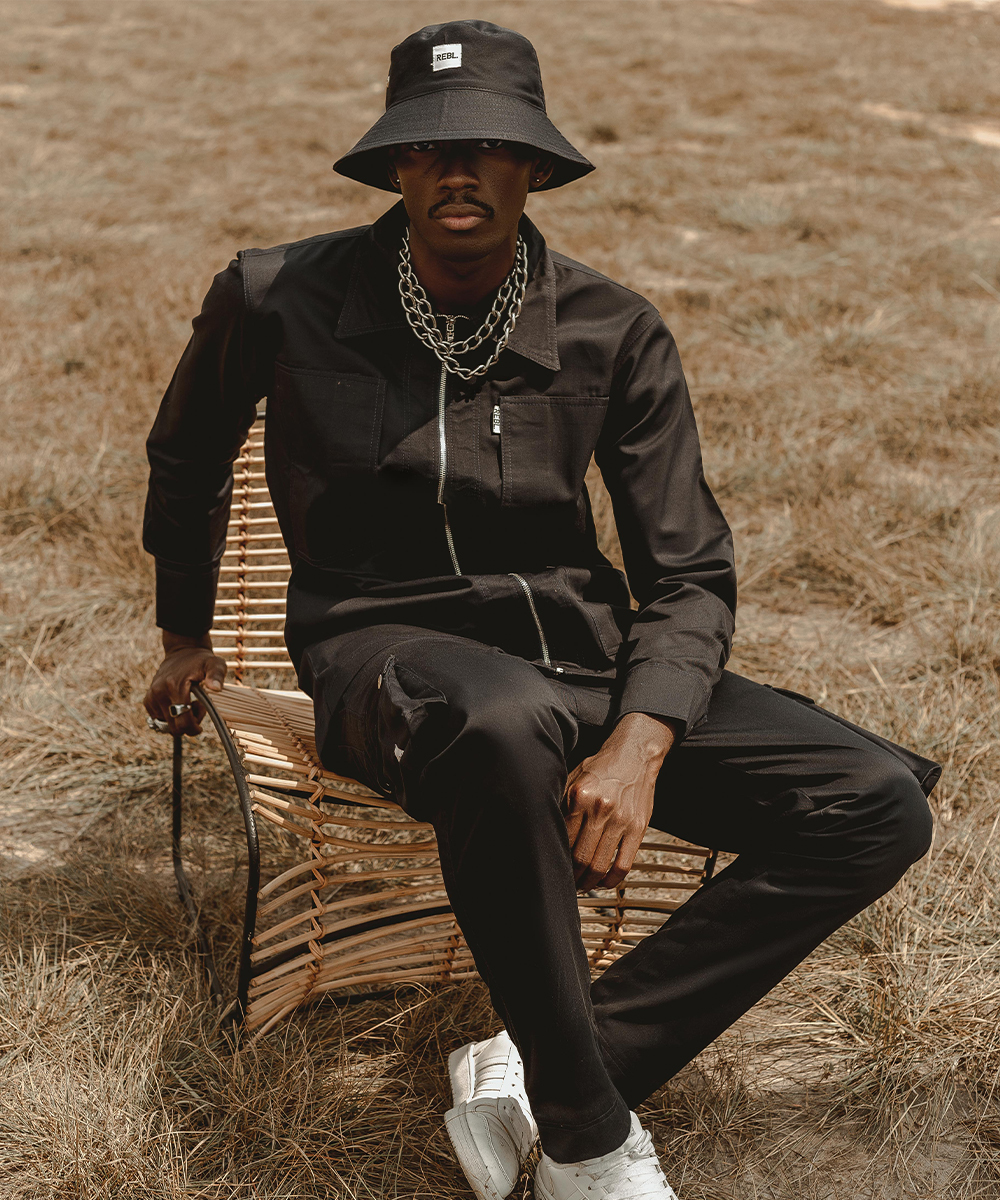
Do you think we will ever see the end of fast fashion?
I think we will sooner or later. We’re becoming more and more environmentally conscious with people gradually beginning to understand the dangers of fast fashion and what goes at these factories. Vintage and thrift shopping is on the ascendancy. People prefer to buy from sustainable brands these days... it’s a work in progress I’d say!
What can you tell us about the vision board party you hosted in Accra in December 2019? What was the response from those who attended?
So the vision board party dubbed “Manifest Night & Popup” is an annual pop-up event in the last week every December with support from Afroxsoul (a music collective, management & production company) and the Diaspora Investment Desk, GIPC. At the end of every year people jump into a frenzy deciding what they want to accomplish in the new 365 days hence making this a great time for effervescent trailblazers, creatives, brand influencers to come together to create a visualization of their goals into the incoming year, over bottomless drinks and great music.
In 2019 we had 3 female DJ’s — Beniwasta (from Sweden), Lynarose (from Netherlands) and Toritawk (from US) — which was very important to me. Last year we added Diaspora Discussions — a dialogue featuring a pan African panel. The feedback so far been inspiring hence why it’s an annual event now :)
What’s next for Rebl.? What does 2021 hold?
We keep growing. It’s only our 3rd year and we’re extremely proud of what we’ve been able to accomplish so far. Despite the pandemic we’re dealing with globally, 2021 looks promising! We’ve got incredible collaborations lined up and other projects to undertake which we can’t wait to share with the world. There’s a lot in the pipeline, and 2021 is going to be huge for us.
Next Up, Meet The Wondrous Women Bulldozing Through Barriers With The North Face



